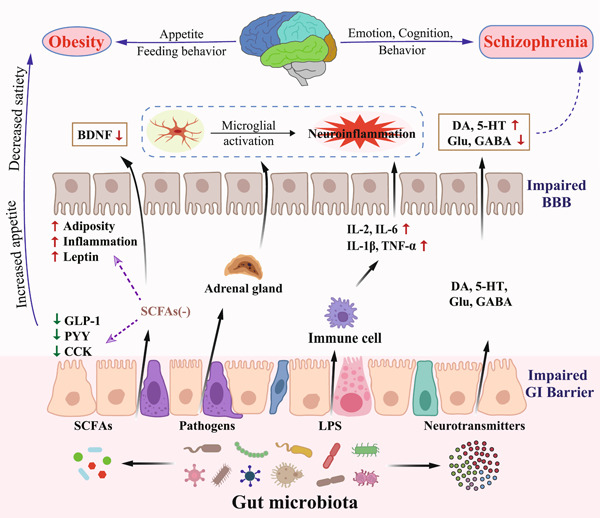Figure 1.

Role of gut microbiota in the pathophysiology of schizophrenia and obesity. The gut microbiota can convert dietary nutrients into metabolites, such as SCFAs, and neurotransmitters, such as DA, 5‐HT, Glu, and GABA. These metabolites have different peripheral and central effects that can alter host cognition, mood and behavior on the one hand, and modify host metabolism and central regulation of appetite on the other hand. The realization of these processes includes the direct crossing of the BBB, the stimulation of the afferent vagus nerve and the triggering of the intestinal endocrine/immune system and the HPA axis, ultimately leading to microglial activation and thus stimulation of upstream neural circuits. 5‐HT, serotonin; BBB, blood–brain barrier; BDNF, brain‐derived neurotrophic factor; CCK, cholecystokinin; DA, dopamine; GABA, γ‐aminobutyric acid; GI, gastrointestinal; GLP‐1, glucagon‐like peptide‐1; Glu, glutamate; IL‐1β, interleukin 1β; IL‐2, interleukin 2; IL‐6, interleukin 6; LPS, lipopolysaccharide; PYY, peptide YY; SCFAs, short‐chain fatty acids; TNF‐α, tumor necrosis factor α.
